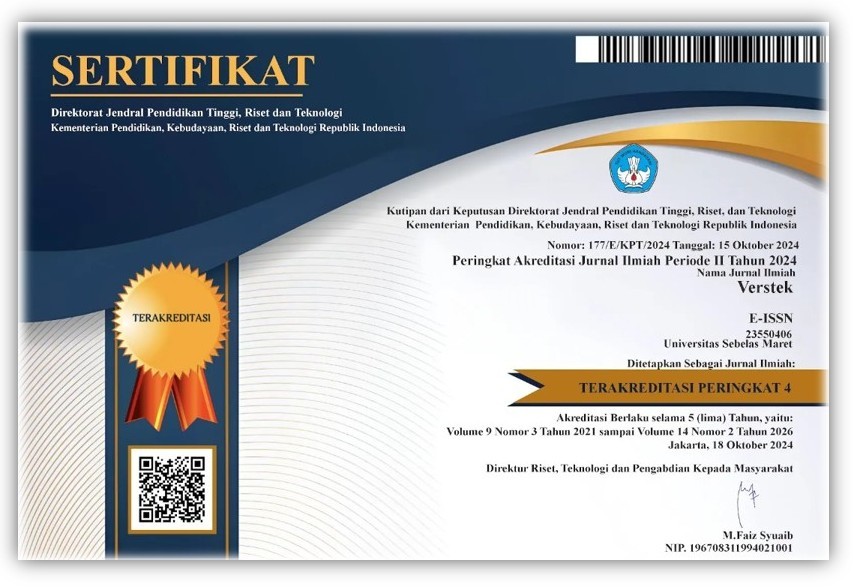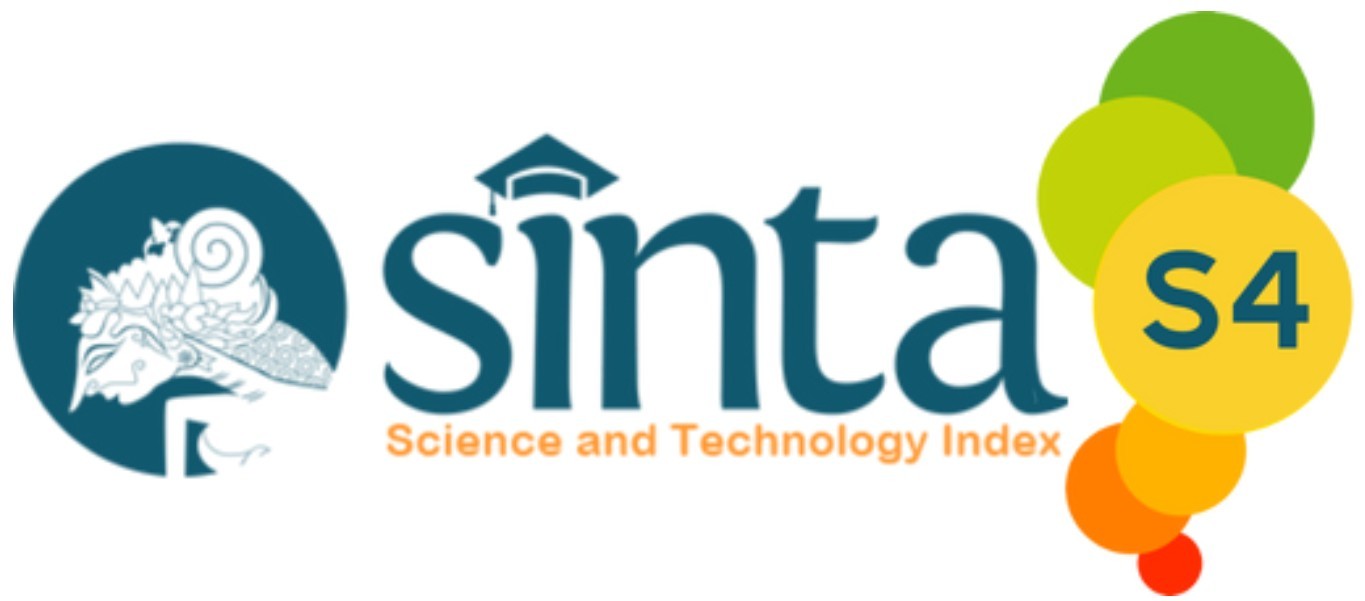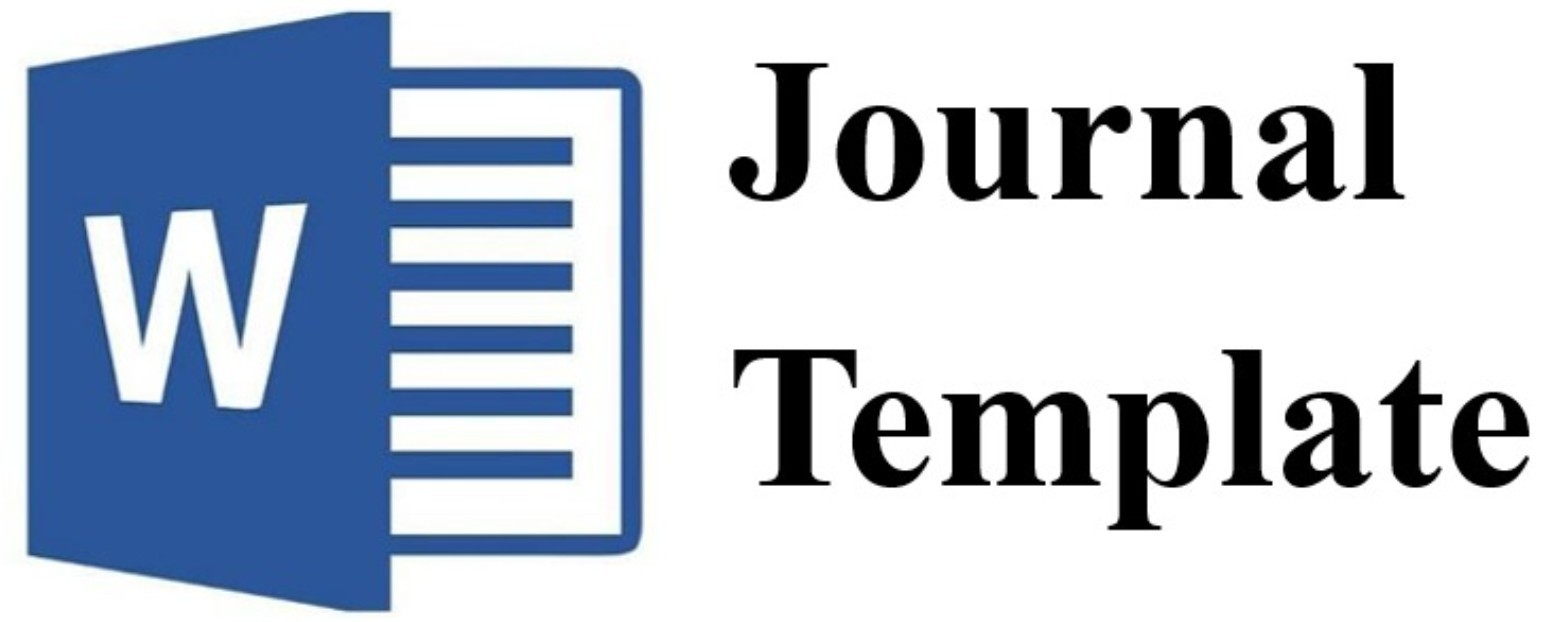Focus and Scope
The scope of the articles published in Verstek Journal deal with a broad range of topics in the fields of procedural law. The purpose of this journal is to promote research on the topic of procedural law.
Verstek Journal provides a forum for academic researchers including students, as well as for practitioners of open legal publishing. Central topics of concern included, but not limited to
- legal construction of procedural law
- critical construction of procedural law in practice
- trends and changes in procedural law
- the technical challenges faced in proedural law
Section Policies
Articles
Peer Review Process
The articles submitted to Jurnal Verstek will be processed through a formatting review by the editor and a substantial review by independent reviewers. The reviewing process is conducted by the single blind review. The reviewers are chosen by editor or a section editor. The decision regarding article publication is based on the review result.
Editor applies a plagiarism scanning with Turnitin and Google Scholar before the article is subjected to a substantial review process
Publication Frequency
Verstek Journal is using a double back to back review method. The article submitted will be peer-reviewed firstly, after some correction by author the second submission will then blind reviewed by reviewer provided in Verstek Journal. Verstek is published by Procedural Law Department, Faculty of Law, Universitas Sebelas Maret three times a year in April, August, and December.
Open Access Policy
This journal provides immediate open access to its content on the principle that making research freely available to the public supports a greater global exchange of knowledge.
Authors submitting a paper to Verstek automatically agree to confer a limited license to Verstek if and when the manuscript is accepted for publication. This license allows Verstek to publish a manuscript in a given issue.
Archiving
This journal utilizes the LOCKSS system to create a distributed archiving system among participating libraries and permits those libraries to create permanent archives of the journal for purposes of preservation and restoration. More...
Publication Ethics
Jurnal Verstek is a peer-reviewed journal published by the Procedural Law Department - Faculty of Law, University of Sebelas Maret .This statement clarifies ethical behaviour of all parties involved in the act of publishing an article in this journal, including the author, the chief editor, the Editorial Board, the peer-reviewer and the publisher. This statement is based on COPE’s Best Practice Guidelines for Journal Editors.
Ethical Guideline for Journal Publication
The publication of an article in a peer-reviewed Verstek Journal is an essential building block in the development of a coherent and respected network of knowledge. It is a direct reflection of the quality of the work of the authors and the institutions that support them. Peer-reviewed articles support and embody the scientific method. It is therefore important to agree upon standards of expected ethical behavior for all parties involved in the act of publishing: the author, the journal editor, the peer reviewer, the publisher and the society.
The Procedural Law Department - Faculty of Law, University of Sebelas Maret as publisher of Jurnal Verstek takes its duties of guardianship over all stages of publishing extremely seriously and we recognize our ethical and other responsibilities. We are committed to ensuring that advertising, reprint or other commercial revenue has no impact or influence on editorial decisions. In addition, the Faculty of Law, University of Sebelas Maret and Editorial Board will assist in communications with other journals and/or publishers where this is useful and necessary.
Publication Decisions
The editor of Jurnal Verstek is responsible for deciding which of the articles submitted to the journal should be published. The validation of the work in question and its importance to researchers and readers must always drive such decisions. The editors may be guided by the policies of the journal's editorial board and constrained by such legal requirements as shall then be in force regarding libel, copyright infringement and plagiarism. The editors may confer with other editors or reviewers in making this decision.
Fair play
An editor at any time evaluate manuscripts for their intellectual content without regard to race, gender, sexual orientation, religious belief, ethnic origin, citizenship, or political philosophy of the authors.
Confidentiality
The editor and any editorial staff must not disclose any information about a submitted manuscript to anyone other than the corresponding author, reviewers, potential reviewers, other editorial advisers, and the publisher, as appropriate.
Disclosure and conflicts of interest
Unpublished materials disclosed in a submitted manuscript must not be used in an editor's own research without the express written consent of the author.
Duties of Reviewers
Contribution to Editorial Decisions
Peer review assists the editor in making editorial decisions and through the editorial communications with the author may also assist the author in improving the paper.
Promptness
Any selected referee who feels unqualified to review the research reported in a manuscript or knows that its prompt review will be impossible should notify the editor and excuse himself from the review process.
Confidentiality
Any manuscripts received for review must be treated as confidential documents. They must not be shown to or discussed with others except as authorized by the editor.
Standards of Objectivity
Reviews should be conducted objectively. Personal criticism of the author is inappropriate. Referees should express their views clearly with supporting arguments.
Acknowledgement of Sources
Reviewers should identify relevant published work that has not been cited by the authors. Any statement that an observation, derivation, or argument had been previously reported should be accompanied by the relevant citation. A reviewer should also call to the editor's attention any substantial similarity or overlap between the manuscript under consideration and any other published paper of which they have personal knowledge.
Disclosure and Conflict of Interest
Privileged information or ideas obtained through peer review must be kept confidential and not used for personal advantage. Reviewers should not consider manuscripts in which they have conflicts of interest resulting from competitive, collaborative, or other relationships or connections with any of the authors, companies, or institutions connected to the papers.
Duties of Authors
Reporting standards
Authors of reports of original research should present an accurate account of the work performed as well as an objective discussion of its significance. Underlying data should be represented accurately in the paper. A paper should contain sufficient detail and references to permit others to replicate the work. Fraudulent or knowingly inaccurate statements constitute unethical behaviour and are unacceptable.
Data Access and Retention
Authors are asked to provide the raw data in connection with a paper for editorial review, and should be prepared to provide public access to such data (consistent with the ALPSP-STM Statement on Data and Databases), if practicable, and should in any event be prepared to retain such data for a reasonable time after publication.
Originality and Plagiarism
The authors should ensure that they have written entirely original works, and if the authors have used the work and/or words of others that this has been appropriately cited or quoted.
Multiple, Redundant or Concurrent Publication
An author should not in general publish manuscripts describing essentially the same research in more than one journal or primary publication. Submitting the same manuscript to more than one journal concurrently constitutes unethical publishing behaviour and is unacceptable.
Acknowledgement of Sources
Proper acknowledgment of the work of others must always be given. Authors should cite publications that have been influential in determining the nature of the reported work.
Authorship of the Paper
Authorship should be limited to those who have made a significant contribution to the conception, design, execution, or interpretation of the reported study. All those who have made significant contributions should be listed as co-authors. Where there are others who have participated in certain substantive aspects of the research project, they should be acknowledged or listed as contributors. The corresponding author should ensure that all appropriate co-authors and no inappropriate co-authors are included on the paper, and that all co-authors have seen and approved the final version of the paper and have agreed to its submission for publication.
Hazards and Human or Animal Subjects
If the work involves chemicals, procedures or equipment that have any unusual hazards inherent in their use, the author must clearly identify these in the manuscript.
Disclosure and Conflicts of Interest
All authors should disclose in their manuscript any financial or other substantive conflict of interest that might be construed to influence the results or interpretation of their manuscript. All sources of financial support for the project should be disclosed.
Fundamental errors in published works
When an author discovers a significant error or inaccuracy in his/her own published work, it is the author’s obligation to promptly notify the journal editor or publisher and cooperate with the editor to retract or correct the paper.
Human Subject Protection
Jurnal Verstek adheres to the Human Subject Protection. It encourages research reports submitted to Jurnal Verstek to comply with local/national regulations and ethical considerations to ensure that human subjects are adequately protected from unreasonable risks and adequately informed of the potential harms and benefits of their research participation.
However, it is the author's responsibility to obtain ethical clearance subject to research sponsor/donor/institution requirements before conducting research involving human participants and their data or tissue. The written consent from the research participant should be kept and - when requested - should be disclosed to the journal editor.
Verstek adopts the definition of 'human research' that includes:
- humans taking part in surveys, interviews, or focus groups
- humans undergoing psychological, physiological, or medical testing or treatment
- humans being observed by researchers
- researchers having access to participants' documents or other materials
- the collection and use of participants' body organs, tissues, or fluids (such as skin, blood, urine, saliva, hair, bones, tumors, and other biopsy specimens, or exhaled breath)
- accessing participants' information (in individually identifiable, re-identifiable, or non-identifiable form) as part of an existing published or unpublished source or database
- Accessing health information, personal information, and sensitive information for research purposes
Plagiarism Policy
Every manuscript submitted for publication in Verstek is checked for plagiarism after submission and before being sent to an editor for editorial review.
Verstek uses ‘Turnitin Software’ to detect instances of overlapping and similar text in submitted manuscripts.
How are manuscripts with plagiarism handled?
The manuscripts in which plagiarism is detected are handled based on the extent of plagiarism present in the manuscript.
<5% plagiarism - The manuscript is assigned a manuscript ID and it is immediately sent back to the authors for content revision.
5–25% plagiarism - The manuscript is NOT assigned a manuscript ID and it is immediately sent back to the authors for content revision.
>25% plagiarism - The manuscript is rejected without editorial review. The authors are advised to revise the plagiarized parts of the manuscript and resubmit it as a fresh manuscript.
Retraction
The papers published in Verstek will be considered to retract in the publication if:
- They have clear evidence that the findings are unreliable, either as a result of major error (eg, miscalculation or experimental error), or as a result of fabrication (eg, of data) or falsification (eg, image manipulation);
- It constitutes plagiarism;
- The findings have previously been published elsewhere without proper attribution to previous sources or disclosure to the editor, permission to republish, or justification (ie, cases of redundant publication);
- It contains material or data without authorisation for use;
- Copyright has been infringed or there is some other serious legal issue (eg, libel, privacy);
- It reports unethical research;
- It has been published solely on the basis of a compromised or manipulated peer review process;
The author(s) failed to disclose a major competing interest (a.k.a. conflict of interest) that, in the view of the editor, would have unduly affected interpretations of the work or recommendations by editors and peer reviewers;
The mechanism of retraction follows the Retraction Guidelines of Committee on Publication Ethics (COPE) which can be accessed at:











